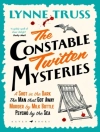In ‘The House of the Arrow, ‘ A.E.W. Mason crafts a masterful narrative that intertwines mystery and psychological depth, set against the backdrop of early 20th-century England. Employing a rich, evocative literary style that seamlessly navigates the shifting dynamics of social class and familial obligation, Mason constructs a gripping tale of revenge and intrigue rooted in a grim family secret. The plot intricately unravels through a series of twists and turns that reflect the era’s complex moral landscape, making it an exemplary piece of early modern detective fiction. A.E.W. Mason, an English novelist and playwright, was a contemporary of the great literary figures of his time, such as Joseph Conrad and E.M. Forster. His wide-ranging experiences, including serving in the British Army and exploring diverse cultures, deeply informed his writing. Mason’s keen interest in character psychology and his affinity for detailed storytelling enabled him to delve into the dark corners of human motivation, as exemplified in this novel. Readers seeking a profound exploration of human frailty intertwined with suspense will find ‘The House of the Arrow’ an essential addition to their literary repertoire. Mason’s deft ability to weave tension with psychological insight invites readers to ponder the consequences of vengeance, making this novel both thrilling and thought-provoking.
Giới thiệu về tác giả
Alfred Edward Woodley Mason, widely recognized as A.E.W. Mason, holds a distinctive place in the annals of British literature, particularly in the genres of adventure and detective fiction. Born on May 7, 1865, in London, England, Mason received an extensive education at Dulwich College, Trinity College, and Oxford. His foray into the literary domain was marked by an initial focus on historical novels before he found his true forte in suspense-filled narratives. The House of the Arrow (1924) stands as one of his most renowned works, featuring a methodical and astute French detective, Inspector Hanaud, who became a recurring character in Mason’s subsequent mysteries, much to the delight of his readership. Mason’s narrative style was engaging, characterized by meticulously plotted stories, vibrant descriptions, and an undercurrent of imperialism redolent of his times. Apart from The House of the Arrow, Mason was also known for his earlier work, The Four Feathers (1902), a quintessential adventure novel that cemented his reputation as a master storyteller. His literary output was prolific, and his works continue to be celebrated for their enduring appeal and the glimpse they offer into the sentiments of early twentieth-century England. Mason’s contribution to literature was not limited to his writing; he also served in World War I, adding depth to his understanding of human character and conflict, which would later permeate his creative pursuits. A.E.W. Mason passed away on November 22, 1948, but left behind a rich legacy that continues to captivate readers and academics alike.












